Endings scare the shit out of most or all of us to some degree. Whatever the cause of it… a desire to not see what we’re doing come to an end, or a natural reaction to the idea of death, who knows? But it’s a devil that stalks us all, even more so by infinite degrees for those of us in inventive or creative endeavors. The full blank canvas of making art and the lack of safety net that inherently provides could easily encourage us to avoid this state at all costs. Wh
en we love a thing we’re working on, we don’t want it to end, and when we just want it to be over we can be afraid of what that might mean after. Basically finishing is HARD, but there is likely nothing more essential to any creative person than achieving this.
Finishing gives you permission to begin. It provides authorization to continue and offers, like every new day’s morning light can, the ability to reinvent and start over. Not finishing keeps you stuck in a Groundhog’s Day of nightmares creatively. It shows an inability to let go, to recognize a need to end, even if the piece hasn’t reached the zenith predicted by its beginning. Finishing makes you a better artist and allows you to start over being an even better one.
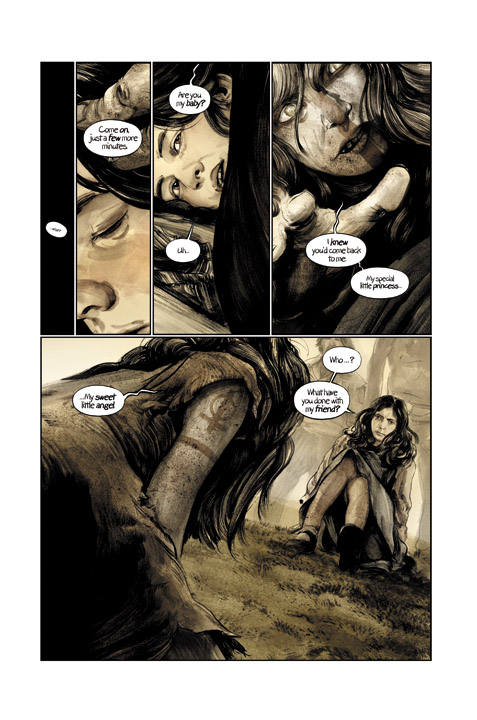 |
| A page from EDENTOWN |
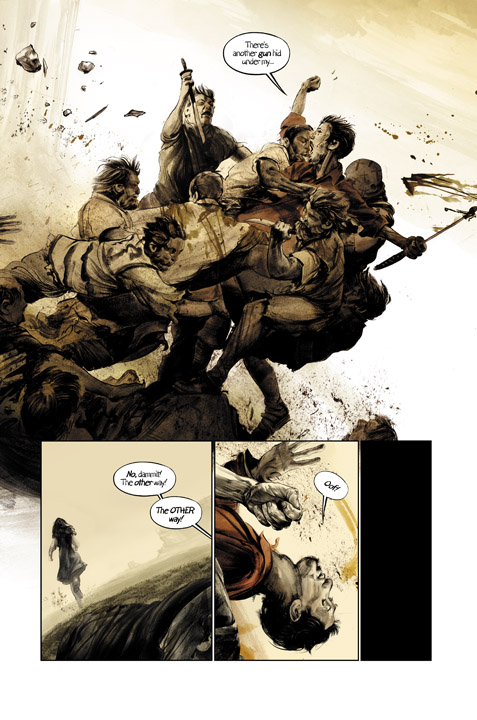 |
| Another page from EDENTOWN |
Not finishing leaves undone business that is hard to let go of creatively. I’ve had two major books never reach their end, and they both continue to plague me by calling out for me to return to finish them. They drive me crazy. One, discussed at length HERE, called THE CALENDAR PRIEST, meant as a loose follow up to my first full length graphic novel, SUDDEN GRAVITY, and my first and last creator owned project at Vertigo Comics, EDENTOWN. Both stalled out fro entirely different reasons, but both share the same nagging sensation of never achieving closure. Characters I adored stand tapping their feet staring at me in my mind waiting for me to honor them by telling their story, plot lines and story conflicts clog my creative pipes because I tend to withhold some of them to use in new work, because of the terrible what if… factor. Not finishing for artists makes us greedy for our work, and that is wholly unhealthy. I have trouble even now, having decided never to return to those, that maybe… just maybe I will. It’s terrible. It’s exile versus departing.
 |
| A misfired scan as evidence of outside forces conspiring against your intentions |
What finishing does for us is important on a thousand different levels, first and foremost, it’s so you can start the process all over again. Why is this the most essential bit? because an artist doesn’t just make a piece, the artist makes many. The ethos of finishing forces us forward, and keeps kicking us out of whatever glorious or terrible nest we make for ourselves. It is how we grow, through challenge and change, and it is how we get better. But it is also how we redeem ourselves. We’ve all of us done terrible works, perceived or real, and for many of us those have even seen print. finishing and getting on with the next thing helps us cathartically shuffle forward, take lessons from whatever failures we just achieved and apply them to the next thing. One of the reasons I adore comics, is that a writer/artist gets to do this through a cycle of many on a single page. It fast forwards this process of development and allows you to become by the book’s end, light years beyond where you were when you started.
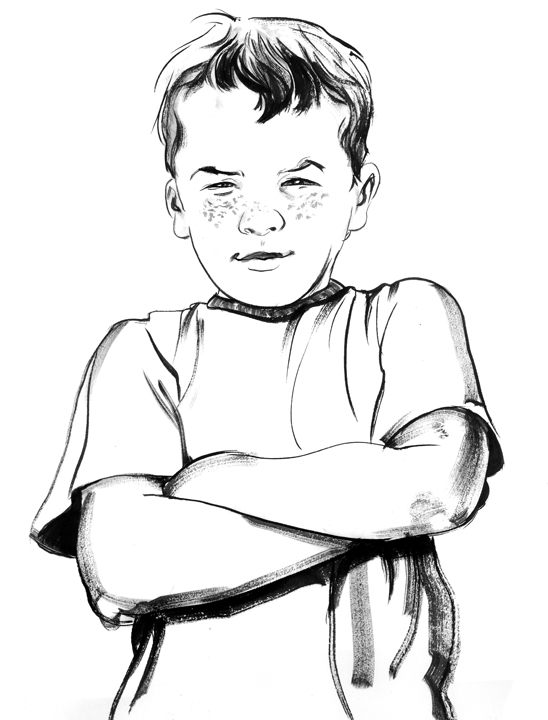 |
| From an unfinished book about a neighborhood bully seeking to be something better. |
But finishing also gives us another important thing as a gift: it gives us closure and distance so we can see what we have done. It means we have done a thing to its full end and taken a thing to its furthest horizon and we know how to stop and move on. For professionals showing this capability is how we get more work and continue to be professionals. An author/artist that has a deep catalogue of completed books, gallery shows tend to get more largely on this basis. Even if you aren’t a superstar or have enjoyed some larger level of success, the mere evidence of seeing the continuation and develop of working and finishing can be enough to be allowed to do it again. Finishing is then, the most important thing to provide one with the opportunity to begin.
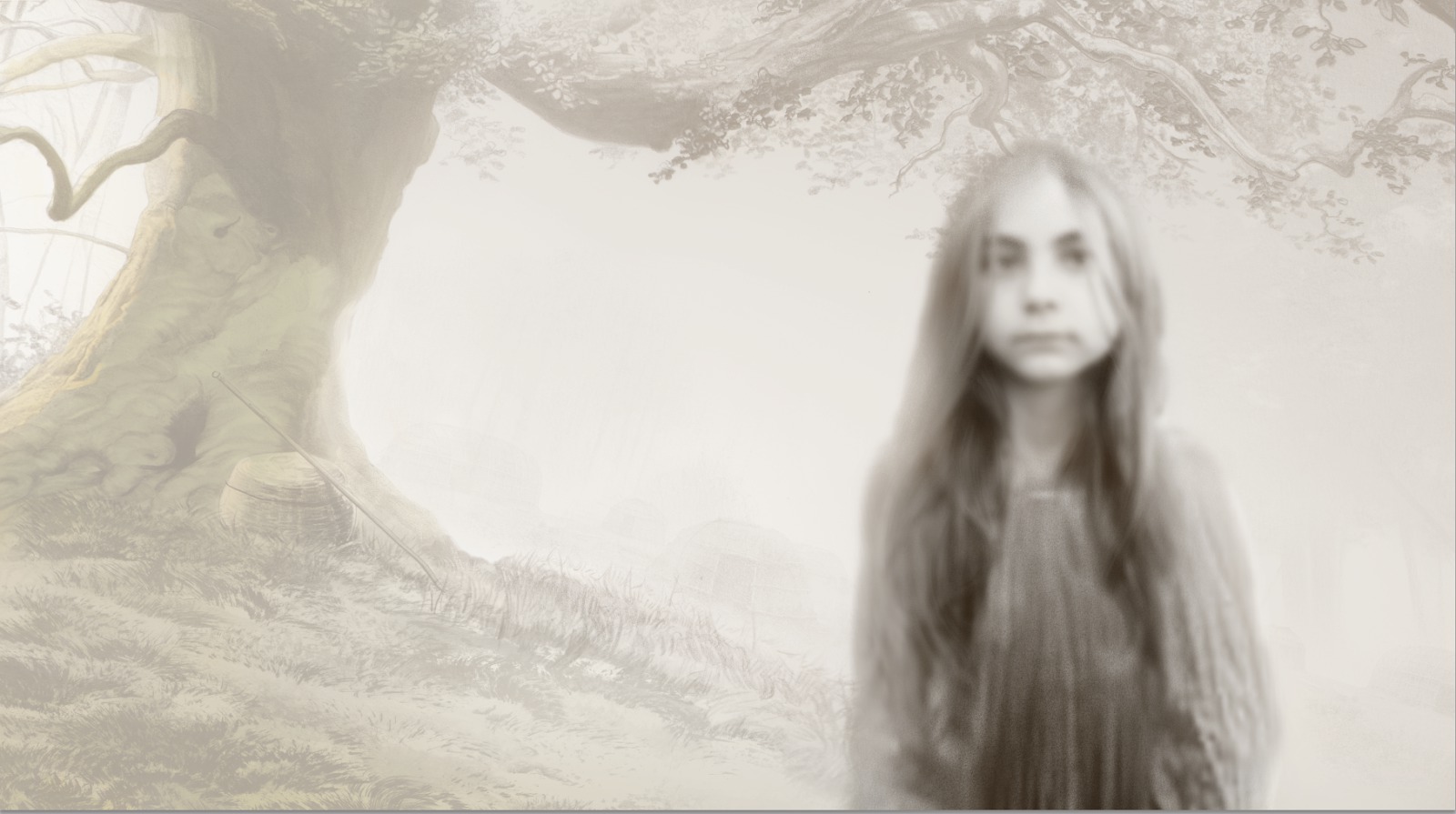


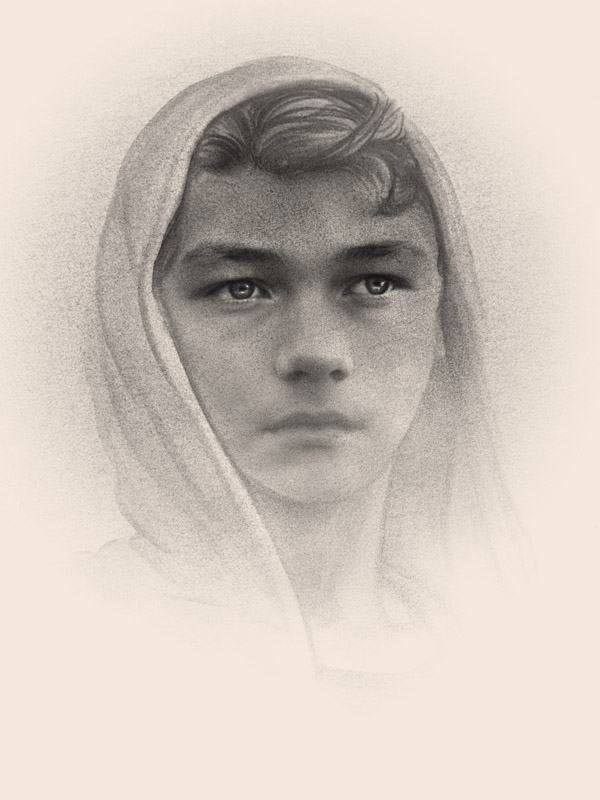
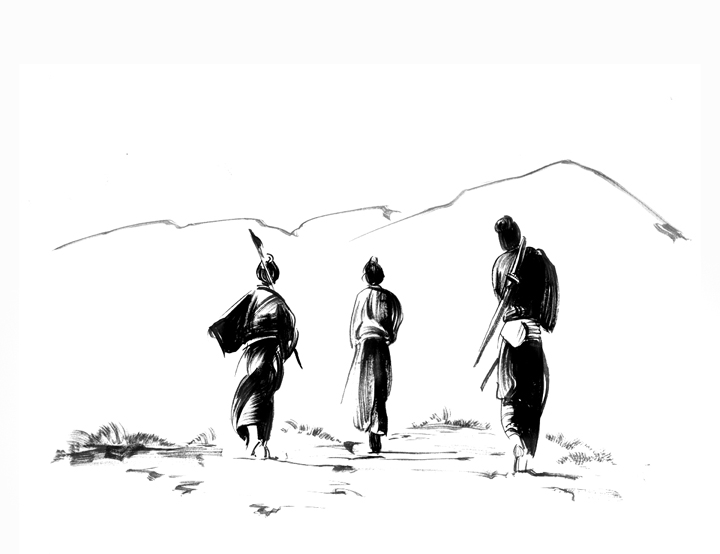
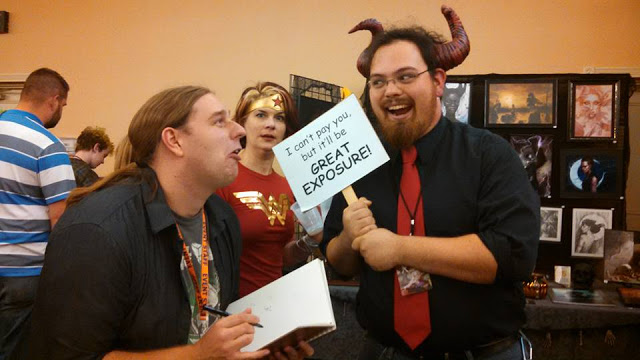
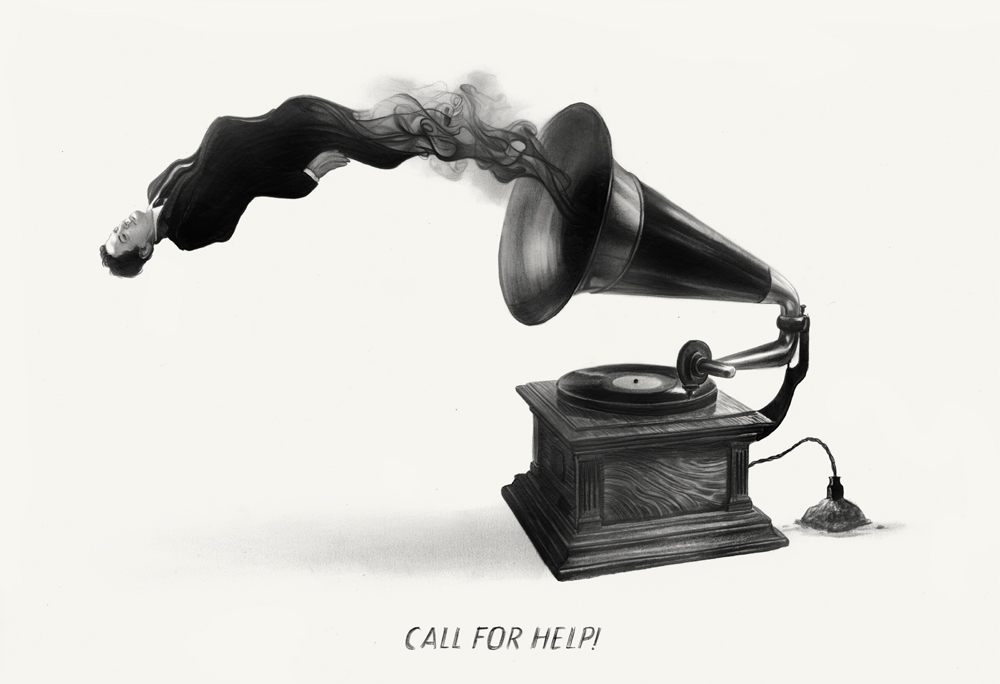


I have a painting that's sitting in my room faced against the wall for a month even though I know in my head what the next steps to finishing it are – but my mind is stuck weighing the possibilities of multiple “finished looks” that I end up doing nothing to it.
After reading this post, I will trust my instinct and let the picture end up however it will but it shall be finished. Good or bad, effective or ineffective.
Thank you, Mr. Ruth!